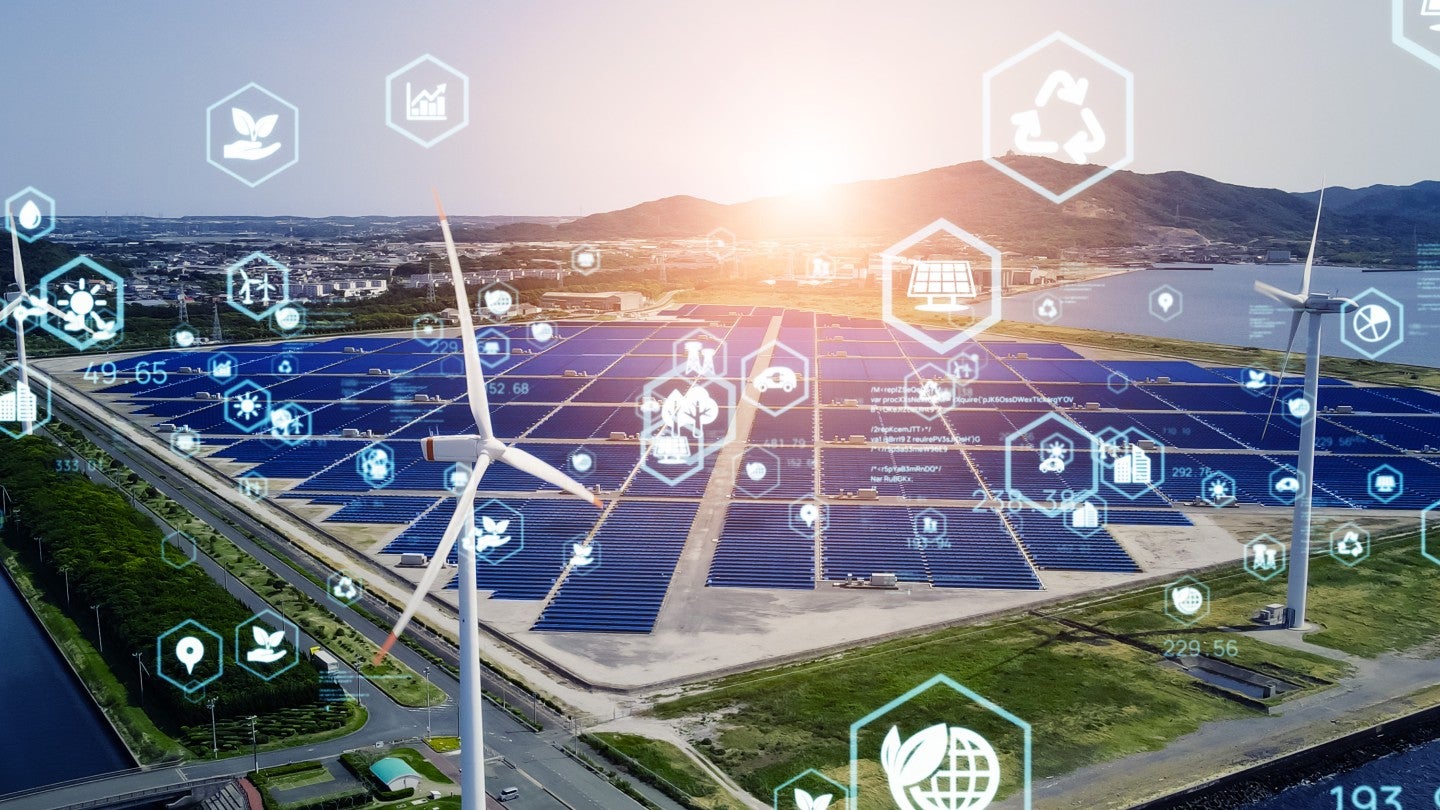
The integration of artificial intelligence (AI) and blockchain will drive smart grids closer to providing and monitoring renewable energy solutions, according to a new report from GlobalData, Energy Monitor‘s parent company.
The Thematic Research: Smart Grid in Power report identifies technological trends and assesses benefits and threats to smart grids. GlobalData forecasts that, as automation, blockchain and AI are incorporated into smart grids, this will push the energy industry to be more reliable, efficient and sustainable as generation and demands for renewable energy will be able to be better monitored in real time. The report also highlights cybersecurity threats to energy supplies and the concerning political implications of such events.
Smart grids are electrical grids that use digital technology to monitor and transmit real-time information about demand and supply. The development and proliferation of these networks are significant for the generation and provision of renewable power.
AI and blockchain in smart grids
Thematic Research: Smart Grid in Power notes that the emerging technology of generative AI can be employed to analyse large swathes of data for purposes such as calculating energy demand, renewable energy output, prices, storage optimisation and more.
The report also highlights that AI can be used to monitor and diagnose system problems, avert blackouts and match supply and demand from renewable energy sources like solar and wind. It details Nvidia’s development of smart grid chips, which are powered by their AI platform to be integrated into smart meters to develop grid resilience.
Also highlighted is the potentially revolutionary impact of blockchain on the electricity industry as the technology can ensure the allocation of power via peer-to-peer energy trading. By way of example, the report notes that Spanish energy company Iberdrola has started to pilot a project using blockchain to guarantee in real time that the electricity being produced and consumed is completely renewable.

US Tariffs are shifting - will you react or anticipate?
Don’t let policy changes catch you off guard. Stay proactive with real-time data and expert analysis.
By GlobalDataUsing blockchain to verify transactions in this way can allow customers to sign up to use 100% clean electricity that is directly traceable to the source, fostering a better culture of accountability within the energy sector. Rehaan Aleem Shiledar, analyst at GlobalData, comments: “The technology is still at the nascent stage and will gain popularity in the coming years.”
A key theme and directional focus for smart grids is renewable integration. With advancing smart grid technology the deployment of energy sources such as wind, solar power and hydrogen can become more common. This can help countries meet their sustainability goals and allow customers more information on the type of energy they are consuming and real-time prices.
Risks for smart grids
A core concern raised in the report for the further development of smart grids is the increasing frequency of cyberattacks in the power sector. Since 2017 there have been reports of cyberattacks on power grids in Ukraine, India and elsewhere, resulting in blackouts, client information leaks and remote controls for wind farms being disabled. Of this, Aleem Shiledar notes: “Although cyberattacks have been growing for a long time, the Russian invasion of Ukraine has raised it to an alarming level.
“Cybersecurity resilience is an important issue and should be addressed by policymakers, regulators and utility companies. Any kind of cybersecurity attack should not be under-reported, and companies should come forward to report such incidents so that necessary measures can be taken.”



